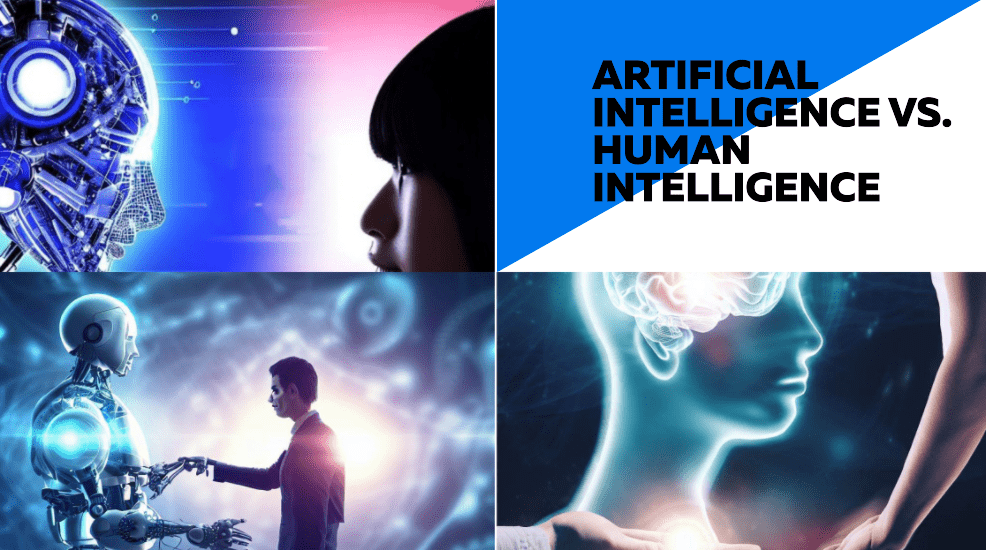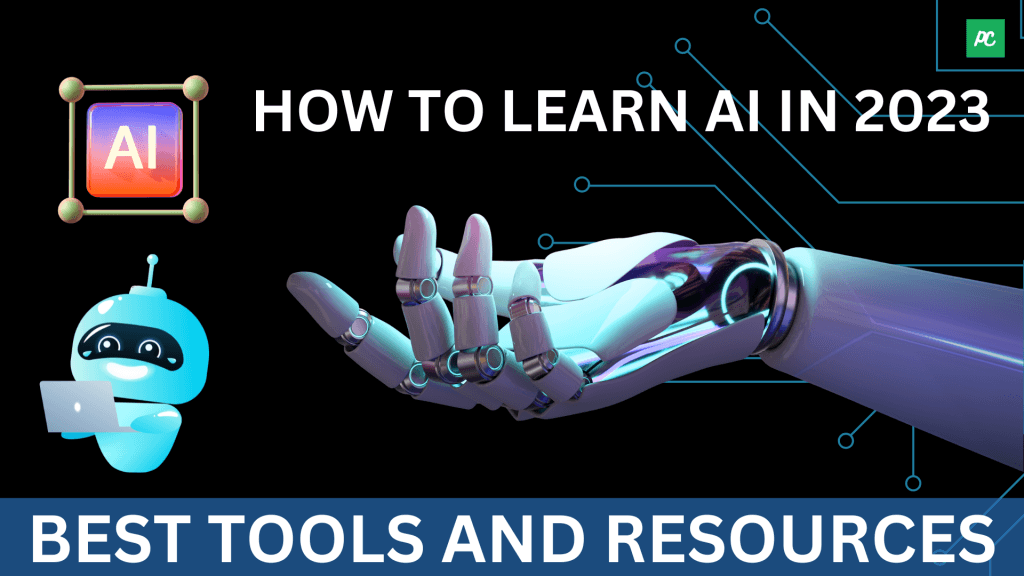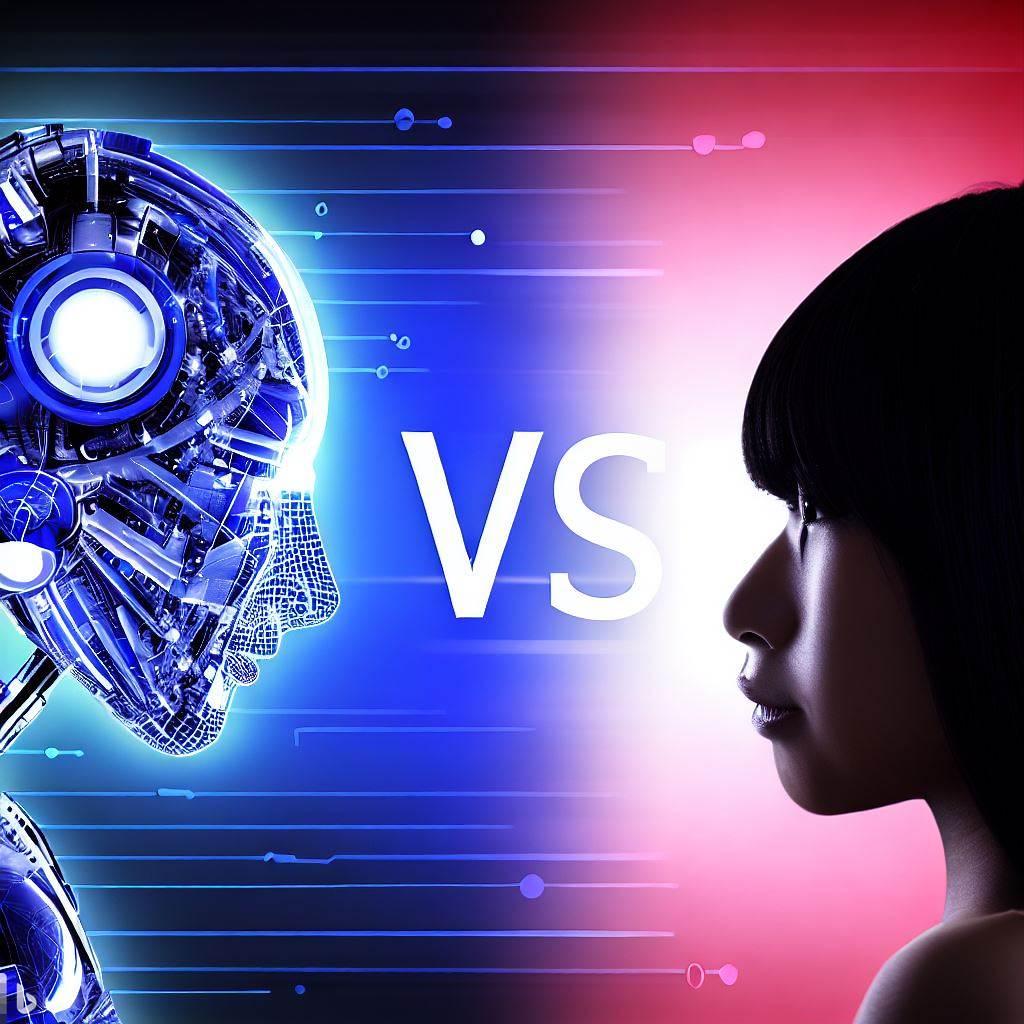Summary

Artificial Intelligence vs. Human Intelligence: Understanding the Differences
Artificial Intelligence vs Human Intelligence. Artificial intelligence (AI) has become a prominent topic of discussion, raising questions about its capabilities compared to human intelligence. This article aims to explore the disparities between these two types of intelligence, providing valuable insights into their unique characteristics and how they can coexist harmoniously.
Understanding Artificial Intelligence
AI, commonly referred to as AI, involves the development of computer systems that can perform tasks requiring human-like intelligence. AI systems utilize algorithms, machine learning, and vast amounts of data to analyze, process, and interpret information. The distinction between AI and human intelligence is a crucial aspect in today’s rapidly advancing technological landscape.
The Role of Machine Learning in AI
Machine learning plays a vital role in artificial intelligence. Through this technique, AI systems can autonomously improve their performance by learning from data and experiences. Machine learning algorithms enable computers to identify patterns, make predictions, and adjust their behavior based on feedback, thereby enhancing their capabilities over time. The continuous learning ability of AI is a key factor that sets it apart from human intelligence.
The Evolution of AI: Progress and Applications
Over the years artificial intelligence has made significant progress , driven by advancements in computational power and data availability. From rule-based systems to neural networks and deep learning algorithms, AI has evolved to address complex problems across various domains. Industries such as healthcare, finance, manufacturing, and transportation have witnessed the transformative potential of AI in automating tasks, improving efficiency, and enhancing decision-making processes.
Exploring Human Intelligence
Intelligence encompasses cognitive abilities that are unique to humans. It involves aspects such as reasoning, problem-solving, creativity, and emotional intelligence. While AI aims to replicate human intelligence, it is important to recognize the distinct qualities that make human cognition exceptional and irreplaceable.
The Complexity of Human Thinking
Operates human intelligence in a highly intricate manner, unlike artificial intelligence. Human cognition involves subconscious processing, intuitive leaps, and the ability to draw connections between seemingly unrelated ideas. The depth and richness of human thinking are attributed to factors like consciousness, self-awareness, and abstract reasoning. These elements differentiate human intelligence from AI and give rise to ongoing debates regarding its capabilities.
Emotional Intelligence and Human Connection
Emotional intelligence is a fundamental aspect of human intelligence, encompassing the ability to recognize, understand, and manage emotions in oneself and others. And Emotional intelligence facilitates effective communication, empathy, and the establishment of meaningful connections. This is an area where artificial intelligence still has room for growth. The ability to perceive and respond to human emotions is a crucial aspect of human intelligence that plays a vital role in various social and professional interactions.
Bridging the Gap: Complementary Coexistence
Although artificial intelligence and human intelligence possess distinct characteristics, they are not mutually exclusive. In fact, they can coexist and complement each other in various domains, leading to synergistic outcomes.
Human-AI Collaboration: Harnessing the Power of Both
In sectors like healthcare, finance, education, and customer service, the collaboration between humans and AI systems has yielded remarkable results. Through synergistic cooperation, the strengths of AI. Such as data analysis, automation, and computational power, can be effectively combined with the unique cognitive abilities of humans. This collaboration enables the development of advanced solutions, improved decision-making processes, and enhanced efficiency across diverse industries.
Ethical Considerations in AI-Human Interactions
As artificial intelligence continues to advance, ethical considerations become crucial. Ensuring transparency, fairness, and accountability in AI systems is vital to prevent potential biases or misuse of data. The responsible development and deployment of AI technologies should prioritize the well-being of individuals and society as a whole. Striking the right balance between AI and human intelligence requires ongoing dialogue, ethical frameworks, and informed decision-making.
Conclusion
In conclusion, comparing artificial intelligence to human intelligence unveils their distinctive features. While AI excels in data processing, pattern recognition, and automation. Human intelligence encompasses creativity, intuition, emotional understanding, and the ability to navigate complex social dynamics. By embracing the strengths of both forms of intelligence and fostering collaboration. We can unlock unprecedented possibilities and navigate the ever-evolving technological landscape with confidence and wisdom. Continued exploration and understanding of AI and human intelligence will shape the future of technology. Allowing us to leverage the immense potential of AI while preserving the essence of human cognition.


